As of Sunday night I assumed that our finished product, Mystery Meat, was a masterpiece! I was very confident that all of our effort and hard work would be easily identified in our documentary. But, due to program bugs in Adobe Premiere Elements, I was not able to preview the product without downloading it to a file. Normally, this process took a few minutes and it was a simple task to perform. But, of course on this particular night my computer was running slower than dirt and I was unable to upload the video to youtube due to the length of the video. After all of the final kinks were out (37 hours of labor later) Alison, Amanda, and I were very pleased with the finished product. We are all perfectionists, so of course there were several elements of the video that, if given more time, we would have been able to perfect.
We would have loved to integrate other video clips in our documentary, but to technological and time restraints we were unable to do so. This video from Jamie Oliver’s Food Revolution was first on my list. In the video he shows a group of students how the chicken nuggets that they eat in school lunches are made. I would have also liked to include interviews with administrators from school districts, parents, and most importantly students who are involved with the school lunch process. Another aspect I would have liked to maneuver was the timing of the slides with the narration. There wasn't much "empty space" in the documentary, due to time constraints of internet uploading sites. This restricted the amount of content we could convey, and made the amount that we did convey come off as abrupt and “in your face” so to speak, and restricted viewers processing time. All in all, with a very limited time for the assignment and some amazing collaboration by our group, I am pleased with the final product. I also posted this documentary on my Facebook account and was pleasantly surprised to see feedback from friends who gained some insight about school lunches. (comments below)
0 Comments
Since the beginning of the semester, I have dreaded the collaborative research project. It’s not that I do not enjoy collaborating with my fellow classmates, but time constraints and schedule conflicts can cause some havoc during a collaborative project. But, when I found out that we were allowed to choose our group my mind was set at ease. I had the pleasure to collaborate with Amanda and Alison, who I’ve worked with in the past, and our schedules and work ethic seem to sync perfectly. We found out that we would have two options for this project either a traditional research paper or a documentary. After completing my oral history project, where I used video technology, I knew instantly that I wanted to divulge into the wonderful world of a documentary. I knew it would be time consuming, but I also knew I was up for the challenge. So, with a lot of coercing, I persuaded my fellow group members to take on the documentary challenge. This was not an easy task, in fact, me and Amanda got into our first argument! It was quickly resolved and we began our collaboration almost immediately after the assignment was given.
We met at various Starbucks and brainstormed our ideas for this monumental challenge. We originally split up the work into three sections; Amanda was in charge of the script, Alison began the research, and I started to toy with the video editing software and researched various music clips and music editing software to figure out the best plan for our attack. Throughout the process, our jobs often overlapped. I helped Amanda with photos for the script and Alison assisted in the writing process as well with drafting the abstract and annotated bibliography. Originally, we had all recorded an equal amount of the narration, but due to technical difficulties with the level and tone of our voices, I had to re-record all of the narration in my voice alone. My group members stood by me with support as I rearranged the final product which was quite the tedious task, as the final product emerged. In Eric Schlosser’s Fast Food Nation: Why the Fries Taste Good, Schlosser explores the wonderful world of potatoes in the potato capital of the world of course, Idaho. He visits the Simplot potato plant and interviews the founder and owner of the plant, Mr. John Richard Simplot himself. Simplot shares his life story of growing up in Idaho, dropping out of school at age fifteen, running away from home, and working at a potato warehouse to support himself. Simplot explains to Schlosser how he became to be a “land hog” and how he built his potato empire, even as an eighth grade drop-out.
Simplot explains how he became a dehydration company soon after the start of World War II and began to mass produce “gold dust” (as he liked to call it) or onion powder for the soldiers. Soon after Simplot began to show interest in the frozen food industry and is currently one of the largest frozen fry companies in the nation, solely supplying such companies as McDonald’s with their incredibly addictive, and some may say delicious French fries. Schlosser also shares that Simplot is still a “land hog” and is still “one of the nation’s biggest landowners.” Schlosser, Eric. "Eric Schlosser's Fast Food Nation: Why the Fries Taste Good (Excerpt)." 26 March 2010. pbs.org. 26 November 2010 <pbs.org/pov/.../fastfoodnation_01.php>. 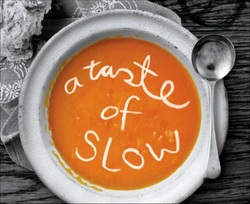 Stephen Schneider explains the history of Carlo Petrini’s Slow Food Movement which started in the 1970s in Bra, Italy. Petrini’s movement started as way to preserve the local culture and utilize the natural resources and produce “clean” unindustrialized food. According to Schneider, Petrini argues that all food should be good, clean and fair. In other words, the Slow Food advocates contend that food should be economically, environmentally, and socially sustainable without compromising the taste and quality. Schneider explains Petrini’s view of “slowing down” in the consumption of our food. He encourages consumers to eat with someone instead of eating on the run, to engage in conversation, and to savor your food, as well as your thought. Schneider, Stephen. (2008) Good, Clean, Fair: The Rhetoric of the Slow Food Movement. College English 70.4, 384-401. Stephen Schneider explains the history of Carlo Petrini’s Slow Food Movement which started in the 1970s in Bra, Italy. Petrini’s movement started as way to preserve the local culture and utilize the natural resources and produce “clean” unindustrialized food. According to Schneider, Petrini argues that all food should be good, clean and fair. In other words, the Slow Food advocates contend that food should be economically, environmentally, and socially sustainable without compromising the taste and quality. Schneider explains Petrini’s view of “slowing down” in the consumption of our food. He encourages consumers to eat with someone instead of eating on the run, to engage in conversation, and to savor your food, as well as your thought.
Schneider, Stephen. (2008) Good, Clean, Fair: The Rhetoric of the Slow Food Movement. College English 70.4, 384-401. Food Inc. explores the meat and poultry industry in a “behind the scenes” format and exposes the “ugly truth” concerning food production in the United States. It takes consumers into the plants and the farms of such companies as Tyson and Purdue (available in most stores in the US) and shows how they treat their animals in an inhumane fashion. Food Inc. also shows how food is now being engineered in order to produce mass amounts, which is compromising the quality of the food that is being consumed. The documentary points out that livestock are being fed various chemicals in order to grow at an increased rate for mass production. It also suggests corruption within Monsanto and the FDA, as well as the connections they have to previous administration in our country.
Kenner, R. (Producer, Director) and Scholsser, E. (Producer). (2008). Food, Inc. [DVD]. Magnolia Home Entertainment. Wendell Berry argues that eating is an agricultural act. He claims that “industrial eaters” are passive consumers and do not grasp this concept. He suggests that the "industrial eater" is susceptible to being a victim to the food industry. Berry explains that consumers should expand their knowledge of the food industry and production in order to find out the truth about the food they consume. He states that farms are injecting unnatural chemicals into animals and produce to produce mass quantities of food, yet such chemicals are compromising the quality of food. These consumers are placing their health and overall well-being in danger by reacting in a submissive manner by continuing to purchase and support large companies. Berry urges consumers to buy local or grow produce in your home or local town. He also advises consumers to prepare their own food, rather than purchasing already processed or prepared (fast) foods.
Berry, W. (1990). The Pleasures of eating. In What are People for? North Point Press.
I remember hearing the introduction music to The Late Show with Johnny Carson and getting chills. The anticipation during Ed McMahon’s introduction of Johnny was exhilarating… “And heerrrreessssssssssss Johnny!” My gram used to let me stay up late when I would sleep over to watch it. I admired Johnny Carson and the way he interviewed celebrities, athletes, political figures, musicians. I used to dream of one day becoming a television personality or a journalist, so doing this project was almost like a test for me.
When I was originally thinking about someone who I could interview with some amazing story about the Holocaust or a tragic event, I realized I had a real hero right under my own roof. He not only served in the military and went overseas, but he was the shyest person in the world! My role as an interviewer as well as a wife and my husband’s best friend benefited me in many ways during the interview process. I am pretty much the only soul that my husband will talk about the war with. I mean he will if you ask him, but his stories are usually vague and lack important or funny details. So, this was a huge advantage in my interview process. But, he also is my husband. My best friend. I have to see him every day (well, sometimes!) and this hindered me in a way during the interviews. I wanted to press him for more information concerning the various tasks and battles he encountered overseas, but knowing him the way I do, I couldn’t do it. I saw the pain in his eyes, the uncomfortable body language, and the change is voice. It struck a chord with me. The things he did overseas, the bad things, I think he is almost ashamed of, and this was a hard thing to take in as a wife and as an interviewer.All in all, it was a beneficial experience for my family. We will now have record of his time in the army and can share it for years to come. I don’t think the Late Show will be calling me anytime soon, but I think I held my own when it came down to content and coercing him to talk about issues he tried to avoid in earlier interviews. Theme #1: A Soldier’s Fear
"I was afraid of not being able to come home for any reason. And then every time I did something I didn’t know if it was gonna be the last time.” “I feel I did a service. ‘Cause when I initially signed up it was in ’99 and the world was a totally different place. So, I never expected any of this to happen.” “We were three and half hours away by helicopter. We were on our…we were off the grid. We only had contact with the main base.” “Insurgents from Africa would take that road to go join the fight. We had a checkpoint that’s where we would go for our three weeks. We had a checkpoint in the road and we would have to search their vehicles and make sure they had proper paperwork and make sure that, you know whatever reason they were going for where ever they said they were going made sense.” “Yeah, sometimes we would catch them carrying weapons, well that’s if they stopped.” What did you do if they didn’t stop? “You gotta do, well mmmm…next question.” “I had disentary and I almost died. I believe I had an Italian doctor who really didn’t know English, so…the nurse who was on duty, he was army, so he was uhhh American. Right before I was gonna leave there was a Special Forces doctor to come check me out. I was sick for four days and I was kinda in and out of it. I had constant IVs because I couldn’t keep any kinda fluid in. I found out later when I came home after looking at my paperwork that they were getting ready to airlift me outta there because my vital signs were so low and they couldn’t figure out what was wrong with me. And, if they’re gonna airlift you outta there there’s a major problem.” Theme #2: Letters to a Soldier “We would get letters. They would come once or twice, I’m sorry, to drop off like supplies and stuff to us. So, we were able to give them letters and they were able to give us ya know the letter s that came in.” “It was interesting it was like you didn’t care what they wrote. You just wanted to hear something from home. When I didn’t get a letter it was like, it broke your heart. Now, you had to wait a couple more weeks till you could talk to your family or your friends.” Theme #3: A Soldier’s Wish List What was another thing you missed from home? “Mc Donald’s.” “Yeah we had TV, but we only had two or three English speaking channels. Watching the football games, like if you wanted to watch ‘em live you would have to stay up till four o clock in the morening. Ummm..or you could watch them the next at a regular time, but it was already taped and if you called him you already found the scores out.” Theme #4: Ground Zero and The Aftermath “I just remember how patriotic everyone was and everyone was all about America. And so, ya know we were a very visual force ‘cause we were made to be. So, we would be there with ya know a Hum-V with a big machine gun on top of it and there would be four or five of us surrounding it and ya know people would always come up to us, and talk to us. I just remember New Year’s Eve especially, we were there, and everyone was stopping and bringing all sorts of food and booze.” (Picture a big smile while saying the word booze!) "I was afraid of not being able to come home for any reason. And then every time I did something I didn’t know if it was gonna be the last time.”
This quote hit me like a ton of bricks. He was twenty-four years old when he got deployed overseas. I could not imagine what it would be like to have such a fear of death and a fear of never seeing my loved ones again. I can’t imagine the anticipation he must felt in the time frame when he was told he was being deployed until he actually arrived in the Middle East. This is a point I might go back to on the next interview. “I feel I did a service. ‘Cause when I initially signed up it was in ’99 and the world was a totally different place. So, I never expected any of this to happen.” I keep listening to this particular quote of the interview over and over again. I think a lot of us (me included) forget what life was like eleven years ago. We were a country with no war. We were a country with citizens that walked around feeling almost invincible, or indestructible. The only footage from disgruntled countries with roadside bombing, etc. was on the world news or CNN. Most of the country was oblivious to what would happen to our country two years later. I confirmed my fact that my husband had no idea that he would ever go to war. I think most military recruits felt that way. It’s such a different time now, and has been since 9/11. The recruits coming in at least have an idea of what they are in for, but the recruits in the late 90s probably assumed that they would never have to battle the front lines in a foreign place. Especially, since the Desert Storm war of the early 90s. Before that it had been years since the United States were involved in a serious war. You could almost see the innocence in his eyes as he spoke of his lack of expectations for his time in service. It was almost as if he was speaking as his nineteen year old self, “So, I never expected any of this to happen.” This is one of the main reasons I have been torturing myself to learn video-editing and bought new software! I feel the facial expressions, along with the audio is very captivating. It also creates a closer connection to the interviewee and the audience. “I just remember how patriotic everyone was and everyone was all about America. And so, ya know we were a very visual force ‘cause we were made to be. So, we would be there with ya know a Hum-V with a big machine gun on top of it and there would be four or five of us surrounding it and ya know people would always come up to us, and talk to us. I just remember New Year’s Eve especially, we were there, and everyone was stopping and bringing all sorts of food and booze.” (Picture a big smile while saying the word booze!) This was an almost nostalgic portion of our interview. I remember the day. We all do. If you were born, you remember where you were when the terrorist attacks on 9/11 occurred. You remember who you were with or what you were doing at the exact moment that the second plane hit, or the terror that you felt when the next plane and the next plane hit. But, another thing I remember about that time was the patriotism of our country. You could not go anywhere without seeing an American flag. There were flags on houses, business, bicycles, and even cars. I cannot imagine how magnified that patriotism must had been in New York City. I’m thinking about asking him what the contrast was between the patriotism of 9/11 compared to 2005 when he came home from overseas. Was there a celebration? Were people as kind? Was there a parade? I’m thinking there was a big difference in how people felt about those two different time periods. The end of that clip struck me as well. He talks about various “strangers” so to speak giving them food and booze all the time, especially New Year’s Eve. His face lit up when he said the word booze, but I think he was just had a genuine good feeling about how people reacted to him and the others. New Year’s Eve? I never thought about that. If we was deployed to Ground Zero on September 13, 2001 and was still there on December 31st, just think of all the holidays he missed. He missed Thanksgiving, Christmas, and New Year’s? He was just twenty-one years old when he was called to go to Ground Zero. It would’ve been his first New Year’s Eve to legally go out and celebrate the coming of a new year. Instead, he was in the streets of New York protecting and preserving what was left after the horrific events. When he was deployed overseas, he was there for over a year, so that means he missed every holiday for the whole year. On my next interview I might want to dig deeper into this aspect of detachment, if there was any. He missed out on so many different events that I believe we, as Americans, take for granted. I want to know if that had any effect on him. Did he feel like he was frozen in time? |
Rebecca's Revival
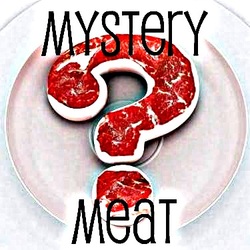
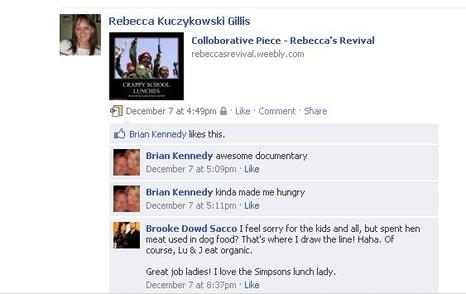

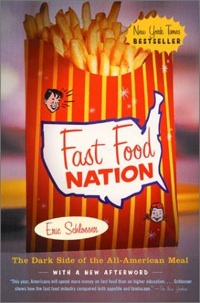


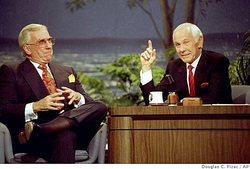
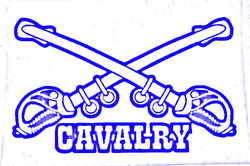
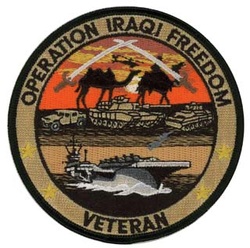
 RSS Feed
RSS Feed